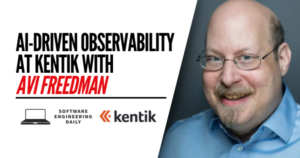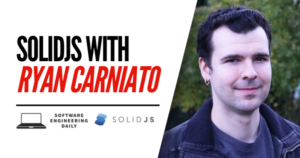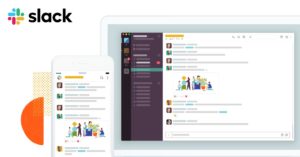Finding the Benefits of Imposter Syndrome

Originally published here by Billy Korando
I am a frequent listener to the podcast Software Engineering Daily. On a recent episode Facebook Engineering Culture, Kent Beck shared his experiences from his time at Facebook. It’s a great episode and I would highly encourage giving it a listen as there are a lot of really interesting nuggets of information. One subject I found really interesting was when Mr. Beck shared how he initially struggled when first joining Facebook and how he dealt with a common feeling in the software engineering world, Impostor syndrome.
We Are All Imposters
Kent Beck was an early advocate for Test-Driven Development and Extreme Programming. He has written a number of popular books on the subjects and has been an influential voice in the software engineering world at-large for several decades now. With such a reputation Mr. Beck is not someone you would think would have to worry about feeling like an impostor.
In 2011 Mr. Beck joined Facebook, with already decades in the industry, he had thought he had “seen it all”. When joining Facebook, new engineers would go through a multi-week “bootcamp” as a way to introduce them to Facebook’s engineering culture. It was during bootcamp Mr. Beck realized he had in fact not seen it all. Facebook’s engineering culture deviated significantly from what he’d thought would be successful; few automated tests were being written, when he decided to hold a class on TDD, no one attended, and he felt he was one of the worst C++ programmers at Facebook, which was reflected in a bad review he got.
Mr. Beck had built his career and reputation on processes that put emphasis on writing automated tests, yet Facebook was finding success in not following these practices. When Mr. Beck tried to uses TDD practices at Facebook, he struggled. Upon realizing he was not performing well at Facebook, he get a feeling familiar to so many other developers, he was an imposter.
Programming Isn’t Just About Slinging Code
Slowly the software engineering world has been moving away from exclusively measuring the worth of a developer in how well they can “sling code”. A funny example of this was when tech twitter was ablaze for few weeks during the summer of 2019 with “10x engineer” memes. While it’s good that there is a greater appreciation that skills outside technical ones are necessary to be a successful developer, often when we experience imposter syndrome it’s because of our concerns related to our technical know how.
This is where Mr. Beck was finding himself back at Facebook. Despite his decades of experience and accomplishments, Mr. Beck realized that he wasn’t going to make it at Facebook just by “slinging code”. So Mr. Beck did some self-evaluation found that he would be of better service by helping to coaching up other engineers:
It was clear that just trying to sling code was not my differential advantage there. I started coaching. I had done a fair amount of one-on-one coaching with engineers before. There were no coaches at Facebook. I could see that there were engineers with tons of unrealized potential.
Because Facebook was solving unprecedented problems, there was no way they could hire somebody to solve them. They had a big bunch of the technical horsepower had to be generated in-house. I started this coaching program called good to great and began working with engineers one on one. Ended up coaching maybe a 150 or 200 engineers.
Personally, the program matched up other senior engineers with junior engineers who got more coaching. My students were demonstrably faster at getting promotions. They were twice as likely to get promoted in the year following coaching than their peers who didn’t get coached, all other things being as much equal as possible.
When we are experiencing imposter syndrome, it is important to remember that even if we lack the technical know how or skill in one area, there are other skills we have that can be of benefit to our organizations. For Mr. Beck it was his skill as a coach that helped him be successful, for you it might be skills and ability in some other area. If you are dealing with feeling like an imposter, take a moment for self-evaluation to see what other skills you could utilize to be successful.
Improvise, Adapt, Overcome
While Kent Beck was improvising by utilizing his coaching skills, a key decision he made was to re-evaluate his approach to programming. As mentioned above, Mr. Beck helped popularize Test-Driven Development. He wasn’t someone who casually wrote a unit test here or there, he literally wrote books on automated testing. However Mr. Beck wasn’t going to be successful by following these methodologies at Facebook, he was going to have to adapt:
I deliberately chose to forget everything I knew about software engineering. I just said, “I’m going to try and be a programmer and I’m going to watch what people do. I’m just going to copy what they do. If somebody says this is too diff since that one, it will be too diffs. If somebody says you need tests for this, I’ll write tests. If they say you don’t need tests for that. Why are you writing tests? Then I won’t write tests, even if I think that’s my – that’s the natural thing to do.
When dealing with the feeling of being an imposter, Mr. Beck didn’t become overwhelmed by it, nor did he suppress it. Instead he embraced it and then overcame it by using it as an opportunity to grow as a software engineer.
Conclusion
As someone who has also at times felt like I’m an impostor, it is good to know that even someone as accomplished as Kent Beck has experienced that same feeling as well. What is important though when encountering that feeling you are an impostor is to remember you have other skills that you can use to be successful and to take the opportunity to learn new ways of being successful so you can grow as an engineer and person.
Quotes taken from show transcript.



















